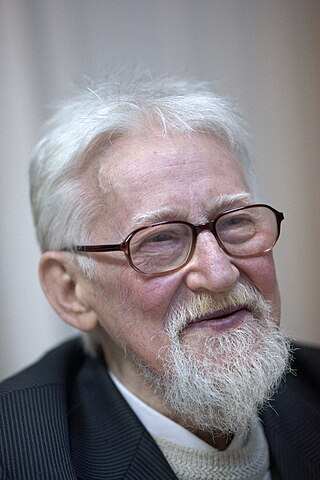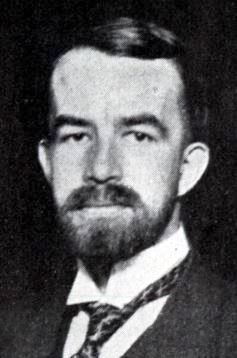Related Research Articles

The Indo-European languages are a language family native to the overwhelming majority of Europe, the Iranian plateau, and the northern Indian subcontinent. Some European languages of this family, English, French, Portuguese, Russian, Dutch, and Spanish, have expanded through colonialism in the modern period and are now spoken across several continents. The Indo-European family is divided into several branches or sub-families, of which there are eight groups with languages still alive today: Albanian, Armenian, Balto-Slavic, Celtic, Germanic, Hellenic, Indo-Iranian, and Italic; and another nine subdivisions that are now extinct.

The Slavic languages, also known as the Slavonic languages, are Indo-European languages spoken primarily by the Slavic peoples and their descendants. They are thought to descend from a proto-language called Proto-Slavic, spoken during the Early Middle Ages, which in turn is thought to have descended from the earlier Proto-Balto-Slavic language, linking the Slavic languages to the Baltic languages in a Balto-Slavic group within the Indo-European family.
Slovincian is the extinct language formerly spoken by the Slovincians living between lakes Gardno and Łebsko near Słupsk in Pomerania.

The Balto-Slavic languages form a branch of the Indo-European family of languages, traditionally comprising the Baltic and Slavic languages. Baltic and Slavic languages share several linguistic traits not found in any other Indo-European branch, which points to a period of common development. Although the notion of a Balto-Slavic unity has been contested, there is now a general consensus among specialists in Indo-European linguistics to classify Baltic and Slavic languages into a single branch, with only some details of the nature of their relationship remaining in dispute.
The history of the Slavic languages stretches over 3000 years, from the point at which the ancestral Proto-Balto-Slavic language broke up into the modern-day Slavic languages which are today natively spoken in Eastern, Central and Southeastern Europe as well as parts of North Asia and Central Asia.

Proto-Balto-Slavic is a reconstructed hypothetical proto-language descending from Proto-Indo-European (PIE). From Proto-Balto-Slavic, the later Balto-Slavic languages are thought to have developed, composed of sub-branches Baltic and Slavic, and including modern Lithuanian, Polish, Russian and Serbo-Croatian, among others.
Anatoly Liberman is a linguist, medievalist, etymologist, poet, translator of poetry, and literary critic.

Vladimir Antonovich Dybo is a Soviet and Russian linguist, Doctor Nauk in Philological Sciences (1979), Professor (1992), Academician of the Russian Academy of Sciences (2011). A specialist in comparative historical linguistics and accentology, he is well-known as one of the founders of the Moscow School of Comparative Linguistics.
Winter's law, named after Werner Winter, who postulated it in 1978, is a proposed sound law operating on Balto-Slavic short vowels */e/, */o/, */a/, */i/ and */u/ according to which they lengthen before unaspirated voiced stops, and that syllable gains rising, acute accent.
Hirt's law or Hirt–Illich-Svitych's law, named after Hermann Hirt, who originally postulated it in 1895, is a Balto-Slavic sound law that triggered the retraction of the accent under certain conditions.
The International Workshop on Balto-Slavic Accentology was an annual international conference on comparative and historical Balto-Slavic accentology, including the prehistory and history of the separate Baltic and Slavic languages, as well as synchronic and dialectal issues that have to do with accentology.
Proto-Indo-European accent refers to the accentual (stress) system of the Proto-Indo-European language.
In linguistics, Illič-Svityč's law refers to two Proto-Slavic rules, named after Vladislav Illich-Svitych who first identified and explained them.
Jay Harold Jasanoff is an American linguist and Indo-Europeanist, best known for his h2e-conjugation theory of the Proto-Indo-European verbal system. He teaches Indo-European linguistics and historical linguistics at Harvard University.

Christian Schweigaard Stang was a Norwegian linguist, Slavicist and Balticist, professor in Balto-Slavic languages at the University of Oslo from 1938 until shortly before his death. He specialized in the study of Lithuanian and was highly regarded in Lithuania.
Rick Derksen is a Dutch linguist and Indo-Europeanist at the University of Leiden who specializes in Balto-Slavic historical linguistics with an emphasis on accentology and etymology.
Osthoff's law is an Indo-European sound law which states that long vowels shorten when followed by a resonant, followed in turn by another consonant. It is named after German Indo-Europeanist Hermann Osthoff, who first formulated it.

Proto-Slavic is the unattested, reconstructed proto-language of all Slavic languages. It represents Slavic speech approximately from the 2nd millennium B.C. through the 6th century A.D. As with most other proto-languages, no attested writings have been found; scholars have reconstructed the language by applying the comparative method to all the attested Slavic languages and by taking into account other Indo-European languages.
The Proto-Slavic language, the hypothetical ancestor of the modern-day Slavic languages, developed from the ancestral Proto-Balto-Slavic language, which is the parent language of the Balto-Slavic languages. The first 2,000 years or so consist of the pre-Slavic era, a long period during which none of the later dialectal differences between Slavic languages had yet happened. The last stage in which the language remained without internal differences that later characterize different Slavic languages can be dated around AD 500 and is sometimes termed Proto-Slavic proper or Early Common Slavic. Following this is the Common Slavic period, during which the first dialectal differences appeared but the entire Slavic-speaking area continued to function as a single language, with sound changes tending to spread throughout the entire area. By around 1000, the area had broken up into separate East Slavic, West Slavic and South Slavic languages, and in the following centuries it broke up further into the various modern Slavic languages of which the following are extant: Belarusian, Russian, Rusyn and Ukrainian in the East; Czech, Slovak, Polish, Kashubian and the Sorbian languages in the West, and Bulgarian, Macedonian, Serbo-Croatian and Slovenian in the South.
Sergei Lvovich Nikolaev is a Soviet and Russian linguist, specialist in comparative historical linguistics, Slavic accentology and dialectology. He is the author of a number of books and articles on Indo-European studies, accentology, and Slavic dialectology. Nikolaev is Doctor Nauk in Philological Sciences.
References
- ↑ Liberman, Anatoly (1982). Germanic Accentology. U of Minnesota Press. p. 410. ISBN 9780816658183.
- ↑ Rick Derksen; Tijmen Pronk (2011). Accent Matters: Papers on Balto-Slavic accentology. (Studies in Slavic and General Linguistics). Amsterdam: Rodopi. ISBN 978-90-420-3332-0.
{{cite book}}: CS1 maint: multiple names: authors list (link) - ↑ Philomen Probert (2006). Ancient Greek accentuation: synchronic patterns, frequency effects, and prehistory. Oxford [Oxfordshire]: Oxford University Press. ISBN 0-19-927960-8.
- ↑ Shigeki Kaji (2001). Proceedings of the symposium Cross-Linguistic Studies of Tonal Phenomena, Tonogenesis, Japanese Accentology, and Other Topics: December 12-14, 2000, Gakushi Kaikan, Tokyo. Tokyo: Institute for the Study of Languages and Cultures of Asia and Africa, Tokyo University of Foreign Studies. ISBN 4-87297-794-7.